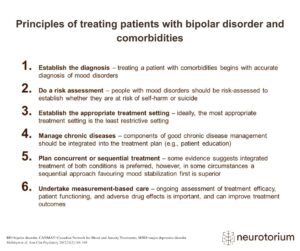Bipolar disorder is a chronic and highly debilitating mental disorder characterized by recurrent mood episodes. A major challenge is its heterogeneous clinical presentation with diverse comorbidities and symptomatology, such as individual differences in the severity of mania, presence versus absence of mixed features, or presence versus absence of psychotic symptoms.
Hanne Lie Kjærstad, Ph. D., summarized the current evidence on the clinical and cognitive observations in individuals with bipolar disorder with a focus on precision psychiatry aiming to distinguish illness trajectories and prognoses for individualized treatment.





